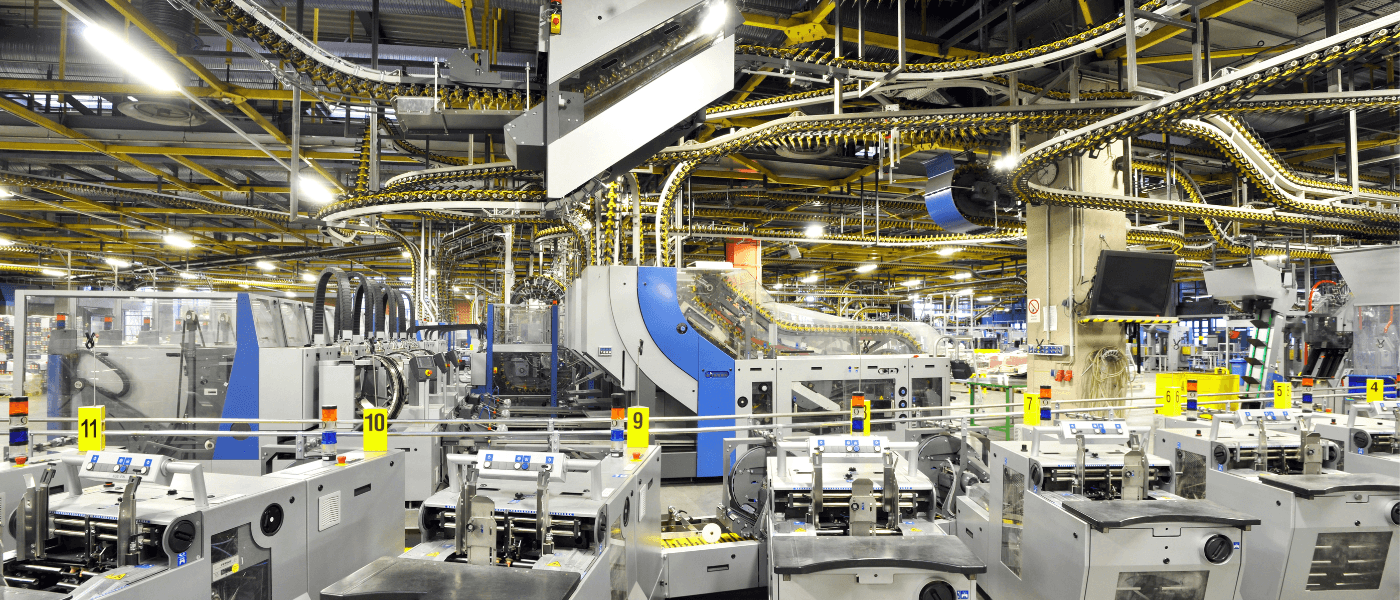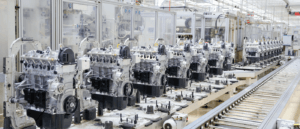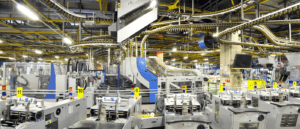Are your production lines running as smoothly as they could be, or are you seeing downtime, errors, or inefficiencies that cost time and money? In today’s competitive industrial environment, every second counts, and Programmable Logic Controllers (PLCs) have become essential tools for maximizing output and reducing waste. I’ve seen firsthand how integrating PLCs into automation systems transforms production—from optimizing processes to increasing safety and adapting quickly to new requirements.
In short, PLCs are the heartbeat of modern automation, keeping operations running at peak efficiency while delivering the reliability that every production line needs. By leveraging PLCs, you can achieve more consistent results, increase productivity, and reduce costs.
Many businesses may not realize the full potential of PLCs, but I assure you, they are invaluable assets for keeping things moving like clockwork in industrial environments. By handling complex tasks with speed, precision, and accuracy, PLCs ensure that your systems work together seamlessly, which in turn elevates the entire production process.
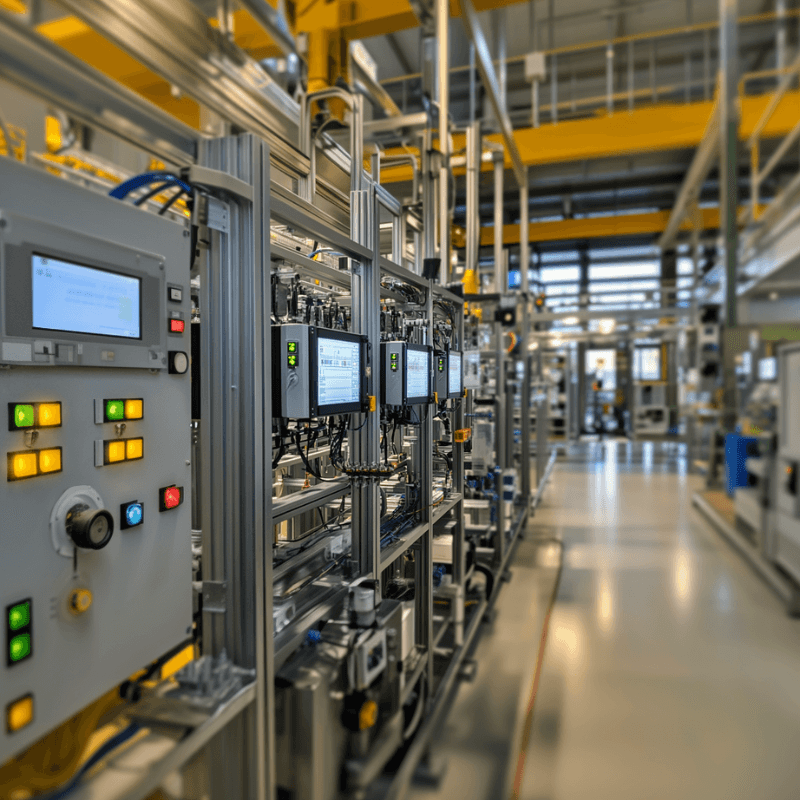
What Are PLCs, and Why Are They So Critical in Automation?
Simply put, a Programmable Logic Controller (PLC) is a specialized computer designed to control machinery and automate processes in industries where consistent, high-quality output is non-negotiable. PLCs have robust processing capabilities and can run nonstop, making them ideal for high-stakes environments like manufacturing. What makes them so essential is their adaptability—they can manage everything from basic tasks to complex functions requiring real-time monitoring and decision-making.
In my experience working with clients across industries, PLCs offer an unmatched level of control and precision. They perform functions that go far beyond what human operators can achieve alone, automating repetitive tasks, minimizing human error, and reducing labor costs.
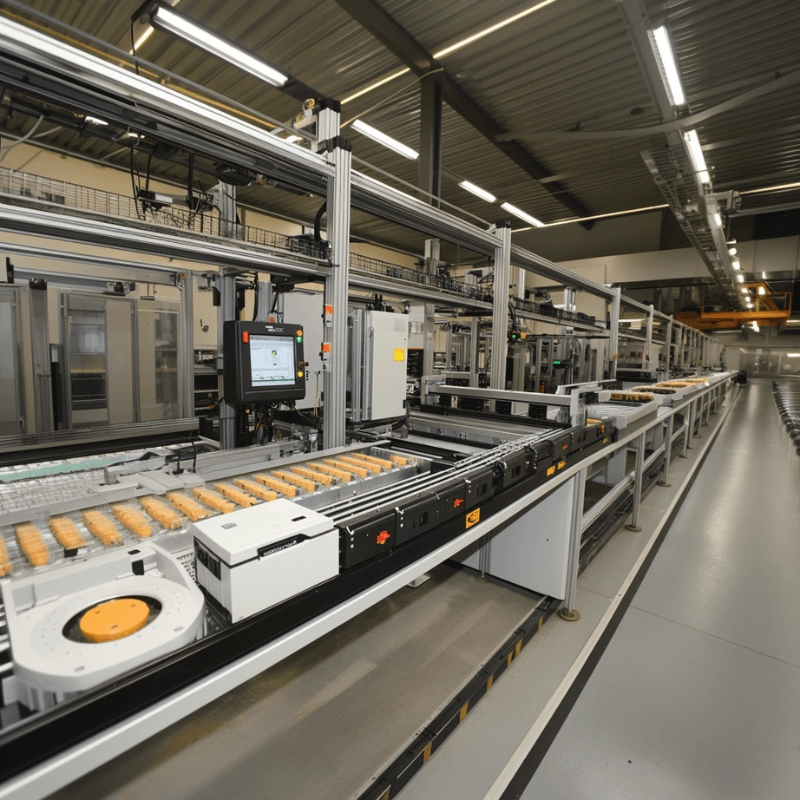
How Do PLCs Drive Production Efficiency?
One of the primary strengths of PLCs is their ability to control multiple aspects of production simultaneously without compromising accuracy. Imagine a factory with multiple production lines—each with machinery that needs to be perfectly synchronized for optimal throughput. PLCs serve as the central “brain,” coordinating these machines to ensure they work in harmony. This smooth operation minimizes production delays and maximizes productivity.
Beyond coordination, PLCs can identify and address potential bottlenecks, allowing for adjustments that keep everything moving at an optimal pace. This control and precision mean your team can spend more time on strategic tasks instead of troubleshooting issues on the line.
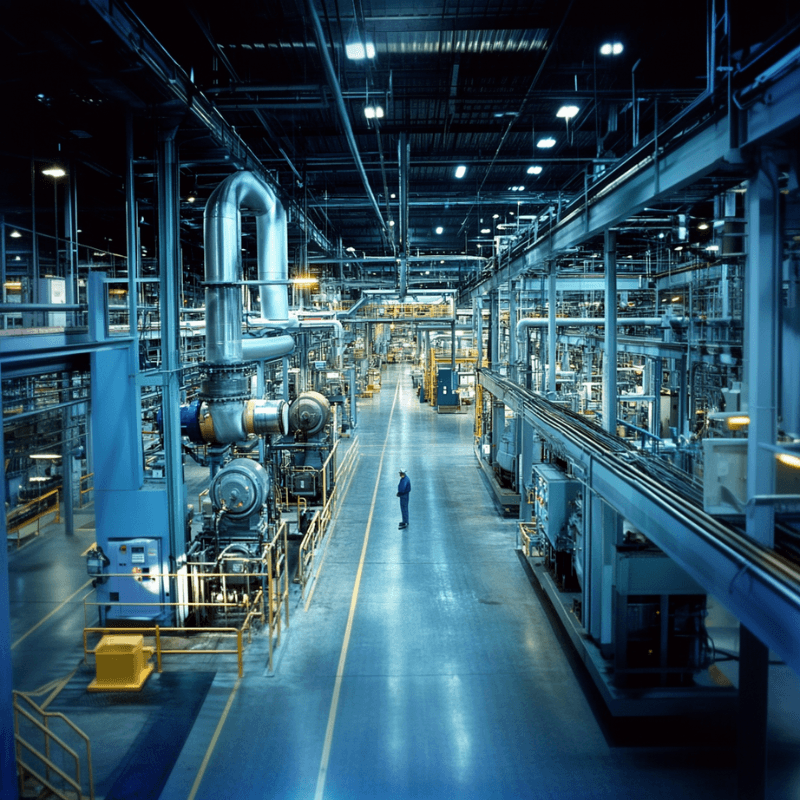
Can PLCs Save Money on Production Costs?
Yes, and in more ways than you might think. By increasing operational efficiency, reducing downtime, and enhancing quality control, PLCs help save on production costs significantly. Reducing machine downtime alone leads to substantial cost savings, as every minute lost due to breakdowns can result in delayed orders and lost revenue. With PLCs, potential issues are spotted early, and many modern systems are equipped to predict and prevent breakdowns, thus minimizing disruptions.
For example, in the automotive and electronics sectors, where precision is essential, PLCs eliminate many of the errors associated with manual processes. Over time, reduced rework and consistent output quality add up to substantial savings. This makes PLCs an investment that pays off through increased productivity and lowered waste.
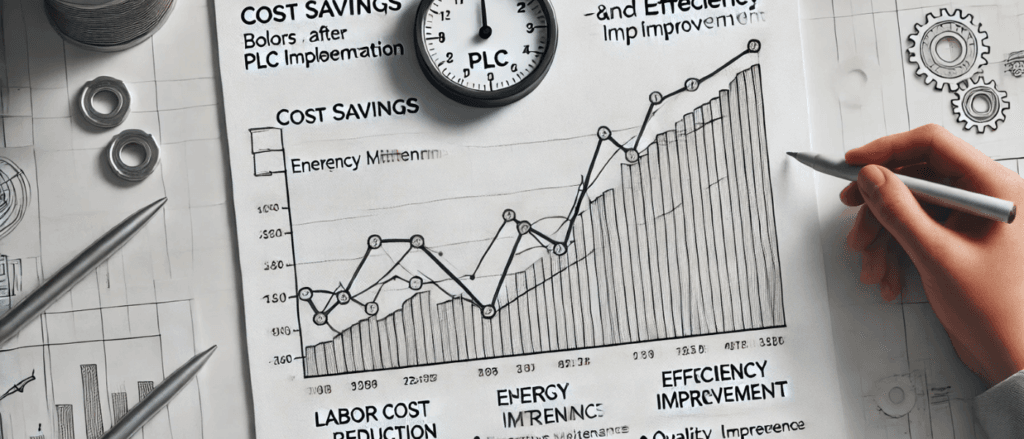
Are PLCs Applicable Across Different Industries?
One of the great things about PLCs is their versatility. Whether you’re in manufacturing, pharmaceuticals, food and beverage, or even oil and gas, there’s a good chance that PLCs can enhance your production process. For instance, in oil and gas industries, PLCs monitor and control pressure and temperature, keeping safety paramount. In food production, they maintain the consistency of taste and texture by automating cooking times and ingredient handling.
No matter the industry, consistency and safety are paramount—and PLCs deliver both. Their role in managing operational safety alone is invaluable, as they instantly respond to changes or abnormalities, helping avoid costly and potentially dangerous accidents.
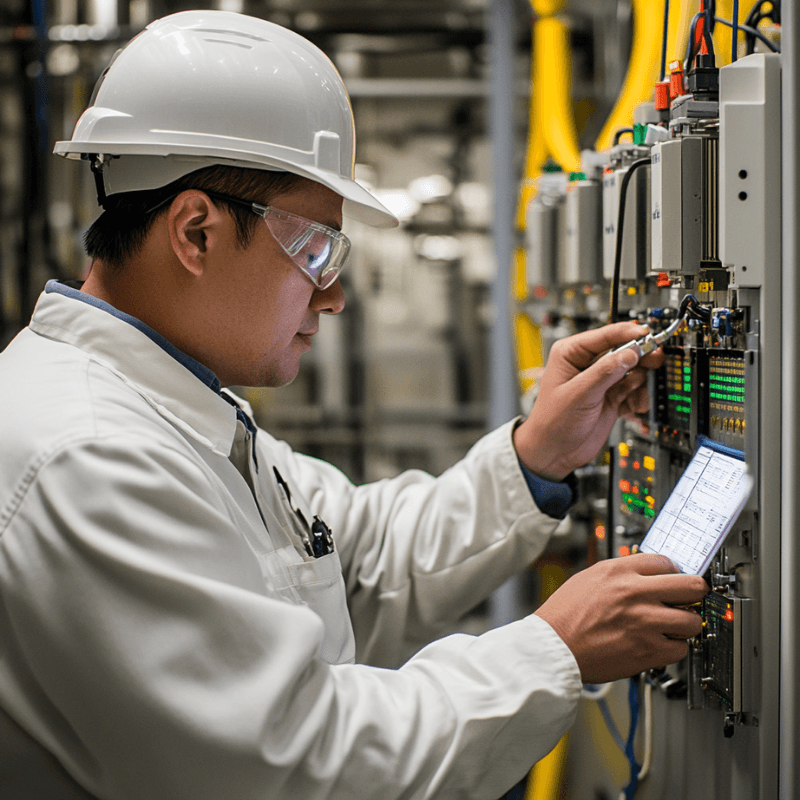
How Do PLCs Enhance Safety in Industrial Settings?
When it comes to safety, PLCs are essential for protecting both machinery and personnel. Modern PLCs can integrate safety protocols directly into their programming, creating a safer work environment. They can monitor machinery in real-time, immediately shutting down equipment if it detects any signs of malfunction. This quick response can prevent accidents and reduce liabilities, which is critical for high-risk industries like heavy manufacturing and chemical processing.
I’ve seen how safety-integrated PLCs have saved clients from potentially dangerous incidents. By ensuring that every machine is monitored and controlled, PLCs offer peace of mind that human operators can’t always provide, particularly in hazardous environments.
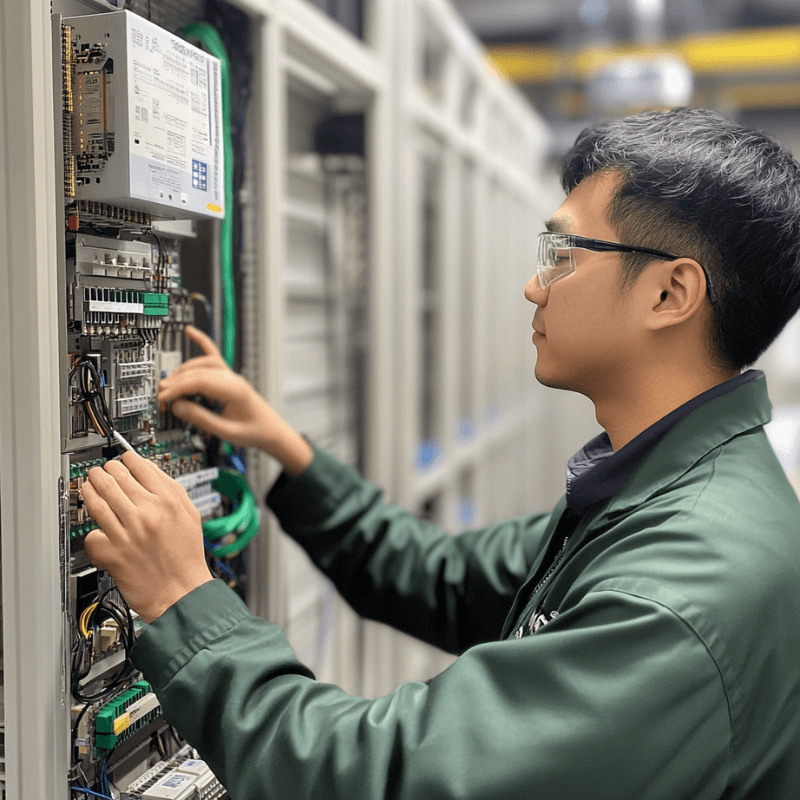
How Do PLCs Adapt to Changing Production Needs?
One of the most impressive aspects of PLCs is their adaptability, a crucial feature in industries that need to adjust processes quickly to keep up with changing demands. As your business grows, your production requirements may change, and your systems need to keep up. PLCs are built to be modular, meaning they can be updated or reprogrammed to meet new demands without overhauling the entire setup.
Imagine you need to introduce a new product line or adjust production levels—rather than investing in new equipment, your existing PLCs can be programmed to handle the changes. This ability to grow and adapt with your business makes PLCs a long-term solution that keeps your production flexible and competitive.
Are PLCs Complicated to Maintain?
For those new to automation, the idea of maintaining a PLC system might sound daunting. However, PLCs are designed with durability in mind, meaning they operate efficiently even in demanding environments. They have intuitive maintenance schedules, and their modular design allows for straightforward component replacements when needed. Many modern PLCs also offer remote diagnostic features, enabling issues to be identified and resolved without costly downtime.
I often tell clients that maintaining a PLC is like maintaining any critical equipment—routine checks and timely replacements keep them running smoothly. Our team provides guidance on maintenance schedules, ensuring you get the best performance from your investment.
How Do PLCs Support Industry 4.0 Goals?
PLCs are integral to Industry 4.0 as they support seamless integration with IoT devices, SCADA systems, and other smart technologies. With this connectivity, PLCs collect data from sensors and devices, enabling real-time insights and predictive maintenance. The power to see issues before they become problems is invaluable, and these insights help fine-tune production, enhance uptime, and ensure quality control.
The future of automation lies in intelligent systems, and PLCs bring that intelligence to your production line. They act as the “nerve center” of a smart factory, enabling a level of monitoring and control that transforms production and keeps you ahead of competitors.
How to Get Started with PLCs?
If you’re thinking about integrating PLCs into your automation system, the process is simpler than it might seem. At Uni Regal, we focus not only on supplying high-quality PLCs but also on providing hands-on support from initial assessment to implementation. We help you understand which PLC models are right for your production needs, and our team ensures every step—installation, programming, and ongoing support—is smooth and stress-free.
Starting with a consultation is a smart approach, as we can identify areas where PLCs will make the most impact on your operations. This process of evaluating, planning, and integrating ensures that your transition to automated control is successful, seamless, and aligned with your business goals.
In today’s industrial landscape, PLCs are truly the backbone of modern automation. They bring precision, consistency, and reliability to production processes while minimizing downtime and optimizing resources. Whether you’re looking to improve efficiency, enhance safety, or stay competitive in a rapidly evolving market, PLCs are the solution. With our experience and expertise at Uni Regal, let’s find the perfect PLC setup to take your production to new heights.
Take the first step today. When it comes to achieving the future of automation, it’s not just about having the right technology—it’s about having the right partner.

